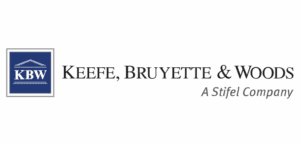What is the rapid COVID-19 test?
What is the rapid COVID-19 test?
Rapid Point-of-Care tests, test performed or interpreted by someone other than the individual being tested, can be performed in minutes and can include antigen and some NAATs. Self-tests are rapid tests that can be taken at home or anywhere, are easy to use, and produce rapid results. Laboratory tests can take days to complete and include RT-PCR and other types of NAATs.Watch Video: Viral Test for COVID-19 [00:01:08] Antibody Tests An antibody test (also known as a serology test) can detect
Where can I find a location that has at-home over-the-counter COVID-19 tests?
Consumers can visit stores online or in-person. The Biden-Harris Administration is also strongly incentivizing health plans and insurers to set up a network of convenient options across the country like pharmacies or retailers, including online retailers, where people can get COVID-19 tests for free at the point of sale, rather than having to submit claims for reimbursement. Consumers can find out from their plan or insurer if it is providing direct coverage of over-the-counter COVID-19 tests through such a network of preferred pharmacies or retailers. Jan 12, 2022
How long does it take for COVID-19 symptoms to start showing after exposure to the virus?
People with COVID-19 have had a wide range of symptoms reported – ranging from mild symptoms to severe illness. Symptoms may appear 2-14 days after exposure to the virus. Anyone can have mild to severe symptoms.
What are consequences of a false negative COVID-19 test?
Risks to a patient of a false negative test result include: delayed or lack of supportive treatment, lack of monitoring of infected individuals and their household or other close contacts for symptoms resulting in increased risk of spread of COVID-19 within the community, or other unintended adverse events. Jul 21, 2021
Can patients who have recovered from COVID-19 continue to have detectable SARS-CoV-2 RNA in upper respiratory specimens?
• Patients who have recovered from COVID-19 can continue to have detectable SARS-CoV-2 RNA in upper respiratory specimens for up to 3 months after illness onset in concentrations considerably lower than during illness; however, replication-competent virus has not been reliably recovered and infectiousness is unlikely.
How long is the incubation period for COVID-19?
– The incubation period for COVID-19. Given that the incubation period can be up to 14 days, CDC recommends conducting screening testing at least weekly.
What is a self-home test for COVID-19?
Self-tests for COVID-19 give rapid results and can be taken anywhere, regardless of your vaccination status or whether or not you have symptoms. They detect current infection and are sometimes also called “home tests,” “at-home tests,” or “over-the-counter (OTC) tests.”
What if I can’t afford to pay for the at-home over-the-counter COVID-19 test(s) upfront?
See full answer Health plans and insurers are strongly incentivized to set up a network of convenient options across the country, such as pharmacies and retailers, where people will be able to order online or walk in and pick up at-home over-the-counter COVID-19 tests for free rather than going through the process of having to submit claims for reimbursement. Consumers can find out from their plan or insurer if it is providing direct coverage of over-the-counter COVID-19 tests through such a network of preferred pharmacies or retailers. You can also access free testing in the community. A list of community-based testing sites can be found here. COVID-19 tests are also available without cost-sharing to covered individuals when administered by a health care provider like a nurse, doctor, or pharmacist, without limitation. Jan 12, 2022
What is insurance on your house called?
Home insurance, also commonly called homeowner’s insurance (often abbreviated in the US real estate industry as HOI), is a type of property insurance that covers a private residence.
What does it mean to insure a house?
Homeowners insurance is a form of property insurance that covers losses and damages to an individual’s residence, along with furnishings and other assets in the home. Homeowners insurance also provides liability coverage against accidents in the home or on the property.
Is house insurance a good idea?
Homeowners insurance is an excellent idea even if your mortgage is paid off, you paid cash, or you inherited your property without a mortgage. Most homeowners don’t have the funds available to rebuild or make substantial repairs if their home is heavily damaged or destroyed. Mar 30, 2022
How much insurance do I really need on my house?
Most homeowners insurance policies provide a minimum of $100,000 worth of liability insurance, but higher amounts are available and, increasingly, it is recommended that homeowners consider purchasing at least $300,000 to $500,000 worth of liability coverage.
What are the 2 types of home insurance?
Types of Home Insurance in India Standard Fire and Special Perils Policy. … Home Structure/Building Insurance. … Public Liability Coverage. … Personal Accident. … Burglary & Theft. … Contents Insurance. … Tenants’ Insurance. … Landlords’ insurance. More items…
What are the three types of homeowners insurance?
Homeowners insurance policies generally cover destruction and damage to a residence’s interior and exterior, the loss or theft of possessions, and personal liability for harm to others. Three basic levels of coverage exist: actual cash value, replacement cost, and extended replacement cost/value.
Is home insurance included in mortgage?
Is Mortgage Insurance Included in Your Mortgage? Mortgage insurance isn’t included in your mortgage loan. It is an insurance policy and separate from your mortgage. Typically, there are two ways you may pay for your mortgage insurance: in a lump sum upfront, or over time with monthly payments.




